A Journey Within and Beyond Codependency
Codependence is notoriously hard to define, though its characteristic flavor is recognizable once you have a taste for it. It is generally thought of as the behaviors and inner life that goes along with being “fused” or “enmeshed” in an unhealthy way. In healthy relationships, we mutually support each other’s thriving. We honor the unfolding truth of each of our beings, and we behave in ways that make it easier for all of us to be who we really are. We do our best to support the expansion. We genuinely want the true, healthy, empowered, joyful self of each person to grow to its full potential within our relationship’s sheltering container.
Codependence is the opposite of that. In codependence, as though the illness within me has made a binding contract with the illness in you, we will both do our best to stay sick. In codependent relationships, whether we realize it or not, we relate in ways that suppress our thriving, power, joy, and health and instead provide a platform for illness. Codependence was first discovered in alcoholic family systems, where it was observed that addiction is a family issue rather than an isolated expression of one individual.
In other words, despite how much it looks like it’s the addict who is to blame – after all, they’re the one who keeps “messing up,” says the bitter spouse, the wounded son or daughter – the reality is that addiction is co-created in a relationship. This does not mean it is not the addict’s responsibility at all, and it also does not mean that the addict’s behavior is the fault of others in the family. It means that we are all in it together – every person in the family expresses the shared family disease in one way or another.
A codependent family is highly likely to produce at least one addict, as an inevitable outcome of its imbalanced way of being. Certain unspoken family rules – rules like “never say how you really feel” and “never be angry” and “never point out that elephant in the room” and “you take care of my feelings, and I take care of yours” create addicts, overeaters, perfectionist overachievers, victims, victimizers, underachievers, and other shadow expressions. On the positive side, when you change a family’s way of relating, the illnesses it produces can no longer live comfortably there and will disappear.
Typically, people with codependence are afraid to feel their feelings – and no wonder! What they feel is guilt, shame, rock-bottom low self-esteem, depression, if not despair, and crippling anxiety. They have weak or nonexistent boundaries and struggle to find appropriate expressions for their anger, which is abundant (though usually repressed) due to living in a way that violates their core being’s rights and dignity. To manage their anger, depression, and anxiety, codependents often meet their neglected human needs through addictions and compulsions.
Codependents struggle above all with differentiation – a fancy word for knowing who you are and yourself. Differentiation requires the truth. The often-unconscious agreement to stay sick together makes it impossible for a codependent woman to feel her inner truth – to know what she knows, feel what she feels, and think what she thinks. People with codependence do not look for truth within themselves – they squelch the still, small voice inside. Instead, codependents exist concerning another person’s illness – what does your illness say about me?
Codependence is an authentic and terrible form of suffering. People who have it are often as powerless and unconscious about their condition as addicts are at their disease’s height. Codependents live in opposite land. The codependent way of relating – the one that protects illness and suppresses health – does everything backward.
-
- Those who abuse are protected.
- Those who are victimized are held accountable for the abuse.
- Those who mess up are cleaned up after.
- Those who need to learn how to do themselves are rescued from the tiniest of challenges, while those with real trouble to face are left hanging.
- Those who clean-up are to blame.
- Those who speak the truth are denied.
- Those who lie are believed.
The fairy tale, The Emperor’s New Clothes, is about codependence, in a way – about the type of world in which no one can acknowledge the truth that everybody knows in their bones. Simple, felt-sensed truths that we know, without having to think about it, like, “She is smiling, but I can tell that she is angry” or even “He says it is my fault, but it is his fault, and he’s embarrassed, that’s why he’s blaming me” must be denied and pretended away to keep the illness-supporting system going.
Truth heals, so in a family that is agreed to stay sick, truth is assiduously avoided. Hence, the AA wisdom, “secrets keep you sick.” Living on the opposite land means that family roles are also opposite. Instead of being truly nurturing, supportive, and loving, the caregiver expresses his/her shadow form and becomes devouring, undermining, destructive, critical, or rescuing. The innocent, joyful child becomes the lost child, the addict, the victim, or the underperformer.
The child who needs to be allowed to be a child, who needs protection and support, becomes the rescuer, the over-performing hero who saves the parents from themselves through being perfect and good. The one who should be the protector reverses his/her role of shielding the family system from outside evil and instead embodies the force of evil inside the system, embodying the role of tyrant abuser. People with codependence are trapped in reversals of the divine design.
Women with substance abuse disorders are almost always codependent – their substance abuse is an expression of that. Self-diagnosis is highly personal, but for a quick reference to consider whether you have this issue, some signature traits of the codependent style are:
-
- Controlling and dominating people, places, and things, instead of entrusting them to life, in general fearing that if we don’t do something to make something happen or “help” someone do the right thing, then it won’t go the way we need it to for us to feel ok.
- Thinking that whatever someone else is feeling, doing, or saying is our responsibility (and our fault), we must fix other people’s problems and feelings.
- Never being allowed to be angry (believing that anger is always bad, that feeling and expressing anger makes us bad).
- Cleaning up after and rescuing others without being asked.
- Not being able to tolerate separation, disagreement, disapproval, or distance.
- Harming ourselves to preserve the relationship – we would rather hurt ourselves if necessary, to become whatever the person wants us to be than to face separating.
- Lying, manipulating, or hiding things out of fear of what someone else will do.
- Knowing who we are by what other people say about us rather than what we feel.
- Believing it is others’ responsibility to take care of our emotions and feeling sad and angry that they do not.
- Being good at taking care of others while having no idea how to care for ourselves.
If you recognize the following unspoken “family rules,” you probably also know codependence:
-
- We agree we will not say what we really mean, and we will not really mean what we say: we beat around the bush, we leave important things unspoken.
- We will all live in the Emperor’s New Clothes fairytale and not acknowledge what is staring us in the face.
- We will feel overly sorry for the wrong people (like the abusers or the addict) and rescue them from the natural consequences of their behavior, thereby making it impossible for them to learn, grow, awaken, or change.
- We will ignore the needs and lack compassion for vulnerable people and being sacrificed to the family system or scapegoated.
- None of us can need it. To need is selfish, and to be angry about unmet needs makes us bad.
- If one of us steps out of line by breaking these rules, we will enforce each other through guilting, shaming, giving advice, telling people what to do, manipulating, and pressuring.
An Integrative Healing Approach to Codependency Recovery for Women
Discovering that the family system we grew up in is governed by the codependent agreements that create illness can be tough, so it is important to understand that codependence is not a jail sentence or even a terminal diagnosis. It is simply a way of recognizing the “opposite land” quality of the world our family has gotten trapped in.
Once we see this, we can work to free ourselves (and, by extension, our loved ones) from a life trapped in upside down, backward versions of who we really are. If you think you are codependent, it may be time to seek codependency recovery help. Breaking family codependence patterns usually requires professional help. Luckily, the cure for codependency recovery is simple, though, as usual, it simply does not mean easy.
The cure for codependency recovery is the truth: the truth will set you free. The truth of what you feel, what you want, what you know, what you think. The truth of who you are. It takes a bit of effort to get back to our truth after a lifetime of living in opposite land. It requires us to step off the merry go round of madness, even if it means leaving our loved ones there. To stop living out the insane scripts we have been living, stop denying, and name what needs to be named.
Once our truth is rediscovered and resurrected, the reverse spiral of living in opposite land is turned around, and our life force begins to expand outwards and into the world, in the direction it was meant to. Our truth gets stronger and healthier, and its voice gets surer as it helps us know where to go, what to do, who to relate to, how to relate to them. It reliably guides us if we treat it nicely towards health, well-being, and our personal destiny. Sometimes it tells us things we do not want to hear, but it faithfully guides us as no one else can guide us – towards that which is ours, to those gifts life intends for us.
Villa Kali Ma is a place for you to seek the truth, the kind of truth which is personally, deeply resonant, not according to what anyone else says, thinks, or does, but according to your own highest, deepest, truest You. If you seek sustainable codependency recovery, consider Villa Kali Ma, where you can gently peel away the false to truly begin the codependency recovery and healing process from the inside out. We would love to help you navigate your healing journey to long-lasting codependency recovery.


